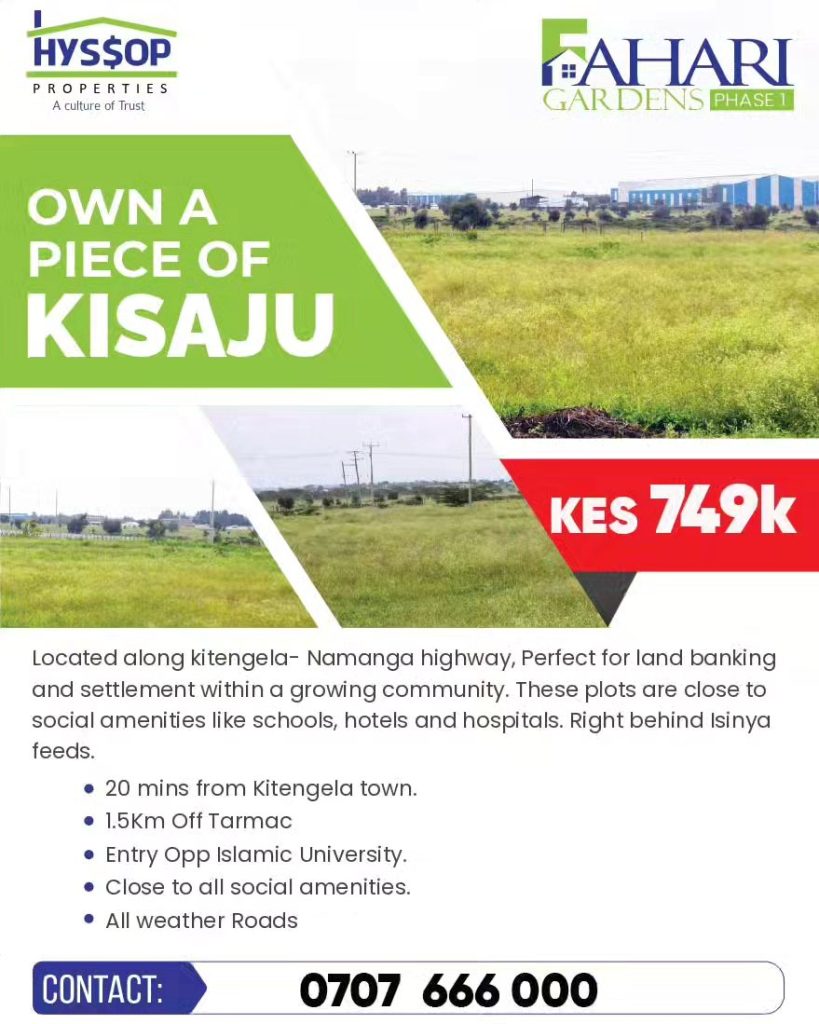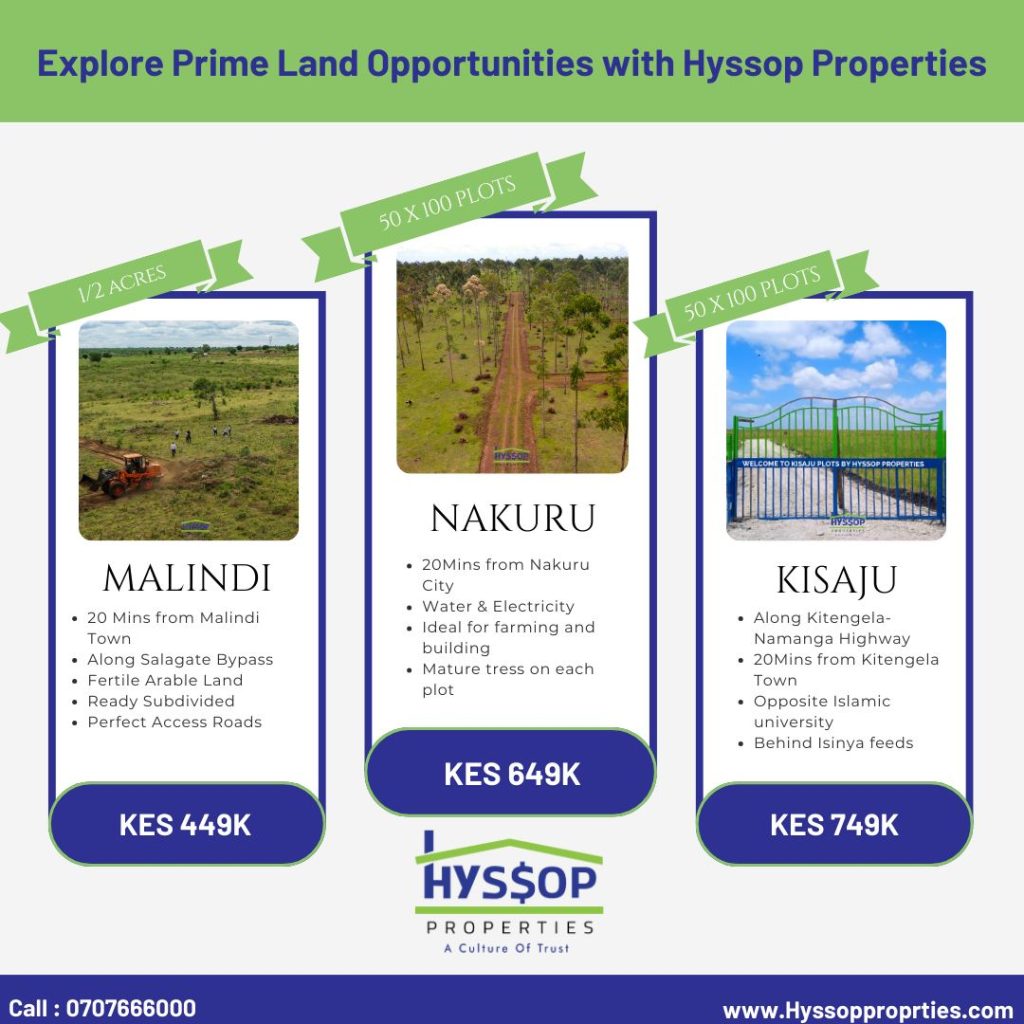
Land Banking: It’s making you money
Investing in land is much like planting a seed in fertile soil—you need to nurture it, be patient, and know how and when to harvest. Land banking stands to be more complicated than simply buying land and waiting for appreciation. Land banking is an art, a science, and a little game of waiting. It calls for a strategic investor who wants to plan, be patient, and finally be keen on the opportunity. With the massive returns promised with this investment, one should carefully look into it.
Kenya presents many opportunities for real estate investment because of the colossal growth in this sector in recent years. A growing population, rapid urbanization, and government initiatives such as Vision 2030 have created room for property appreciation. But before you start dreaming of flipping land for millions, there’s a lot to consider. The land market is a sophisticated beast, and land ownership in Kenya comes with its own set of regulations and procedures that you’ll need to master.
The success of land banking is pretty much hinged on the location you choose to invest in. The golden rule is to look for areas close to rapidly growing cities or towns. Why? Because where there’s growth, there’s value. Infrastructure development—think new roads, railways, or airports—can turn a sleepy plot of land into a bustling hub of activity. Be very familiar with zoning laws and the possible uses of the land. You also want to consider areas with intense economic activity and job creation. These are the places where demand for land will skyrocket, making your investment all the more valuable.

You also need to consider areas with intense economic activity and job creation. These are the places where demand for land will skyrocket, making your investment all the more valuable. It is crucial to carry out proper due diligence. This involves confirming that the land has a clear title and is free from litigation or encumbrances. This isn’t fun, but it’s essential.
What is the topography? Is it an accessible area? How is the neighborhood? Understanding these factors can help you foresee potential challenges down the road. Confirm the land’s usage zones, or else avoid undesired future complications. Confirm that there are no potential threats to the environment. Then there is the history of local prices. Knowing how values have changed in the past can help you judge your success opportunities.
Now that you have found your dream plot and done your homework, it’s time to talk money. Land banking is not some small-time gig; it requires serious financial backing. While investing one’s savings is a resourceful way to start, it may not be sufficient to open a business on a significant level. While traditional mortgages can be used to pay for land, it is necessary to scour over interest rates and repayment terms. You don’t want to pay more interest than the land is worth! Another option is to team up with other investors. Pooling resources in an investor partnership can reduce the financial burden on each individual and spread out the risk.
As with any investment, land banking comes with its share of risks. The impact of economic downturns on land values can cause market fluctuations. Besides, land is regarded as relatively poor in liquidity; for example, it is not easily convertible into quick money. This is not a quick flip; you’re in it for the long term.
Changes in zoning laws or tax policies can also impact the value of your land. Take a case in point: you buy a piece of land for a residential project, and then the area is rezoned for industrial use. Not cool! Let’s not forget the opportunity cost. That money plonked in land elsewhere might generate better returns.
But don’t let these risks scare you off. There are ways to mitigate them. One strategy is to diversify your investments across several plots and locations, whereby if one area takes a hit, you still have others to fall back on. Land banking is a long-term strategy. Avoid short-term gratification. Constantly watch the market situation to make alterations to help you tweak your strategy. Consulting with real estate professionals or financial advisors can also provide valuable insights and help navigate the complexities of the land market.
With increasing urbanization and a swelling global population, demand is expected to rise. Land banking offers excellent opportunities in this respect. However, staying informed about market trends, technological advancements, and regulatory changes is crucial for maximizing the potential of land investments.
Land banking is not just a way to build wealth; it’s a journey of patience, planning, and strategy. By following the tips and advice in this guide, you’ll be well on your way to unlocking the potential of land investments and building a robust financial future.
Our team at Hyssop Properties understands the dynamics and the fundamentals of the emerging land market. You’ll have the expertise and support to make your land and housing investments successful.
Land banking can be likened to fine wine—it takes time, but the rewards are well worth the wait. Whether you’re a seasoned investor or just dipping your toes into real estate, the opportunities in land banking are vast and exciting.

Ready to kick-start your land banking journey? Contact Hyssop Properties today to discover and realize the amazing potential ahead!




Leave a Reply